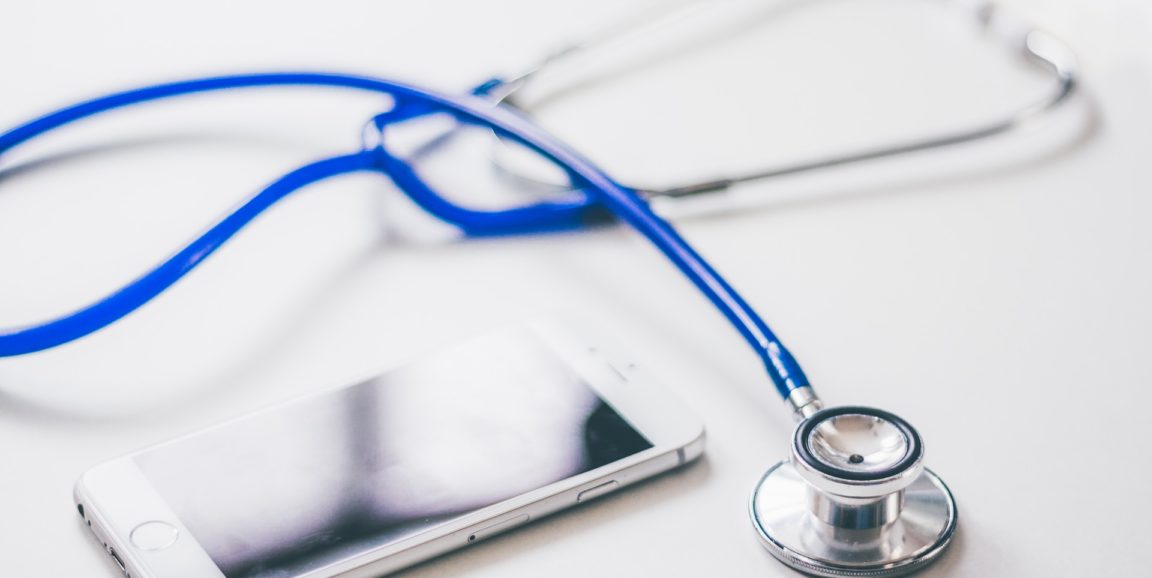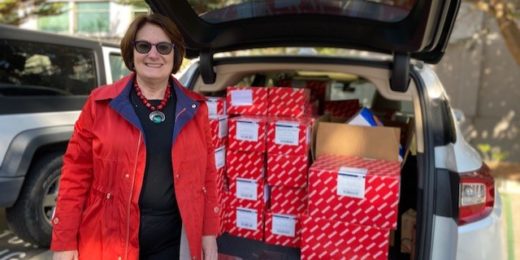During the COVID-19 pandemic, one challenge that I didn't anticipate was helping socially-distanced families connect with their gravely-ill loved ones, now that they can't visit the patient in-person because of safety precautions.
As a second-year neurosurgery resident, I see new neurosurgery consults throughout the hospital and also take care of neurosurgery intensive care unit patients. Generally, these patients have undergone open brain surgeries for invasive tumors or fragile vascular malformations, and need close monitoring. Patients with traumatic head bleeds, or ruptured aneurysms and strokes, also end up in our neurosurgery ICU, intubated, sedated and connected to multiple lines.
Their family members typically want to be by their side. But that stopped being possible in mid-March, after our hospital -- like many others across the country -- changed its policy to guard against spread of COVID-19. Currently, except for a few special situations, no visitors are allowed unless a patient's death is imminent.
When the new rule was instituted, I called families to let them know. I expected cries of outrage and, at the very least, curses. But all I heard were muted acknowledgments that they "understood the situation," and that they had no further questions.
I started conducting daily calls and Facetime sessions with my patients' families. We discuss their loved one's status. I provide updates about the patient's vital signs and their neurologic condition. If the patient is doing poorly, we talk about "goals of care" -- a conversation about what the patient would want most for themselves when a full recovery isn't feasible. I hate having to conduct these discussions this way -- they're already tough enough without navigating disembodied voices and poor cellular reception.
Some families live far away; and with the travel restrictions, social distancing and shelter-in-place orders, they won't be able to make it to Palo Alto to be with their loved one in their final hours. We have been connecting them with these patients via Facetime. With the help of our department's nurses, social workers and chaplains, we try to provide some semblance of dignity and connection. We comb our patients' hair and tuck their intracranial drain tubing behind pillows before turning on the video feed. We pray at the bedside as relatives and friends pass the phone from person to person, each offering intimate goodbyes to the patient they couldn't visit.
For others with a less dire prognosis, we've looked for creative ways to bring their families to them. When a patient's daughter asked me how she could get a portrait of his grandchild in his room, I briefly imagined an elaborate maneuver at one of our hospital's security checkpoints -- a clandestine and appropriately-sanitized package snuck inside. In reality, it was simple enough. They emailed letters and family photos, and we printed them out, pasting them directly across from the bed.
Luckily, there have been moments of hope.
I called one patient's family to report her status after a hemicraniectomy, a procedure in which our team removed part of the skull to allow the injured brain to expand safely after a large blood clot was excised. They asked me how critical her situation was. I spoke gingerly, but truthfully -- "maybe 7 or 8 out of 10".
A few days later, though, I saw evidence she was out of the woods. She was talking and slowly working with her physical therapist at bedside. My team was preparing to transfer her out of the intensive care unit soon.
I wished her family could see her remarkable progress for themselves. But I knew, from their hopeful voices over the phone, that they understood.
Adela Wu, MD, is a neurosurgery resident at Stanford with a longstanding interest in art, writing and literature.
Photo by StockSnap






